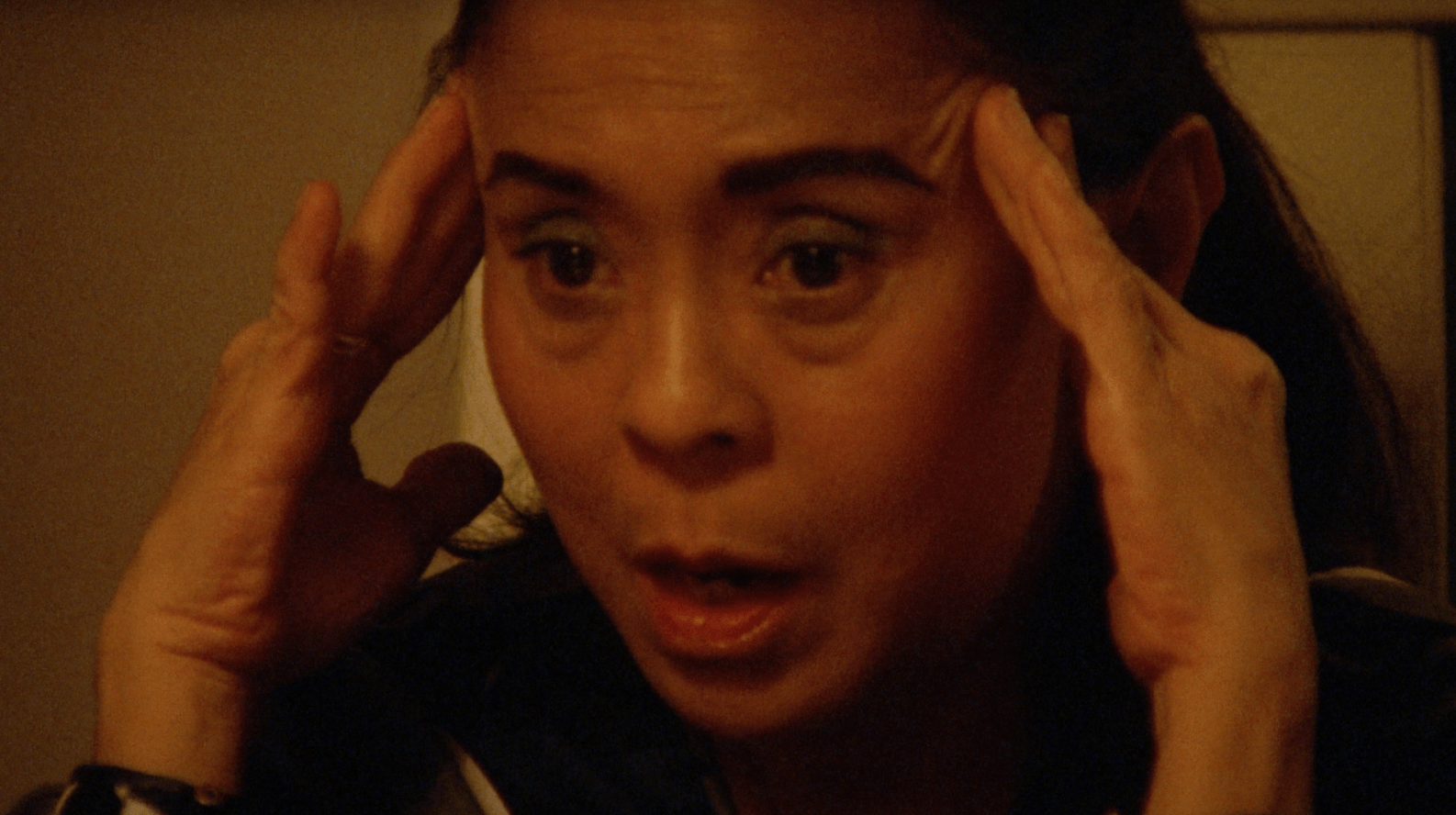SUMMARY
This is AI generated summarization, which may have errors. For context, always refer to the full article.

This review contains minor spoilers.
Between The Temples is a funny, irreverent, and occasionally surrealist depiction of Jewish processing of grief and personal crisis. The film features Jason Schwartzman as Ben Gottlieb, a man in his 40s grappling with low self-confidence and a crisis of faith after being widowed.
Ben finds a renewed sense of energy and purpose only after a serendipitous reunion with his old music teacher, Carla. Carol Kane delivers a compelling performance as she becomes the catalyst for reigniting our protagonist’s zest for life. Following their chance encounter, she embarks on a personal journey towards an adult bat mitzvah, adding an intriguing — and chaotic — twist to the story
What ensues is a claustrophobic and frantic marathon of relationships and breaking of traditions. The point is that there is nothing normal about what they’re feeling, there is nothing normal about following routine and tradition. There is love and passion bubbling on the surface, and it’ll only make people crazy if they don’t let it out.
Dolly de Leon plays the perfect caring mother and loving foil to Schwartzman’s reclusive self. She’s so forceful and endearing, a true Filipina through and through — with all the silent judgements and snarky comments. As Judith Gottlieb, she’s a real estate broker in upstate New York paired with a wife played by Caroline Aaron. They are both part of the Jewish community and they simultaneously uplift and suffocate Schawartzman’s character with social mores and expectations.
Co-written and directed by Nathan Silver, the script originated from the revelation that his mother had been attending classes for her Bat Mitzvah. The chain of events of the film all begin with Carol Kane’s Carla saving our protagonist, who is still in grief about his dead wife, after a bar fight. Ben finds an unlikely remedy for his problems through her, a woman nearing 70. Later on, she defies norms by deciding to attend Jewish classes to undergo a coming-of-age ritual typically done at 13 — a bat mitzvah. Naturally, not everyone is onboard with this and notices the terrible optics.
Beyond its comedic layers, the film raises questions about the limits of “coming of age,” challenging the notion of having everything figured out by the ages of 40 and above. It uses Jewish culture and tradition as a gateway to exploring how rigid institutions of faith can be confronted and reinterpreted in modern contexts. Surprisingly, this reexamination doesn’t come from younger people, as we would normally see in modern media, but from people already withered by old age.
In contrast to the older characters, Madeline Weinstein, who plays Gabby, a young actress trying to make it in Broadway, brilliantly captures being oblivious to Ben’s circumstances. Her character even resorts to utilizing the writings of Ben’s deceased wife as a tactic to explore some rather bizarre fetishes. Her interactions with de Leon are comically delightful as the latter assumes the role of a matchmaker for her adult son, humorously infantilizing him and treating him like a battered puppy.
Scenes reminiscent of Charlie Kaufman start to emerge, mixing the surreal, Dadaist elements of Eternal Sunshine of the Spotless Mind and Being John Malkovich with the pump-action comicality of Wes Anderson’s Rushmore. Schwartzman is perfectly cast in these roles, possessing a face that reflects a deeply troubled soul while balancing the humanity and stubborn idiocy that makes us like him the more he is flawed.
Near the climax, there is a scene where Carla is hospitalized, prompting Ben to instantly dash off in a state of urgency. This sense of franticness is properly captured in both the cinematography and editing. It’s shot on 16mm film, giving a textured feeling of dreaminess and ethereality. This choice enhances the feeling of past memories colliding with the present, even in its brief flickers of the past represented by Ben’s wife. This stylistic approach continues into the Shabbat dinner scene, which is both intensely overcrowded and delightful, maintaining the film’s unique clashing of emotions.
Even minor details end up paying off as big jokes. During a dinner scene with Carla, Ben, her son, and grandchildren, the scene’s awkwardness escalates as abnormally large menus swallow the dinner table. Soundscapes bend at will and create the most unexpected punchlines. Even the dialogue sounds rhythmic, as if shotguns being shot and reloaded rapidly. It’s New York mumblecore with a dash of John Cassavetes and, funnily enough, My Big Fat Greek Wedding.
The movie excels largely because every cast member is acutely aware of the film’s genre and their role within it. It’s precisely this type of independent film that has become synonymous with the Sundance Film Festival. The ending is touching, and it didn’t need a lavish set or a crowd full of extras to pull it off. What makes it resonate is the same formula that has been its strength from the beginning: the beauty of human connection and the reassuring message that growth and self-discovery are perpetual journeys, relevant even as one approaches the later stages of life. – Rappler.com
‘Between the Temples’ premiered in the US Dramatic Competition category of the 2024 Sundance Film Festival.
Add a comment
How does this make you feel?





There are no comments yet. Add your comment to start the conversation.